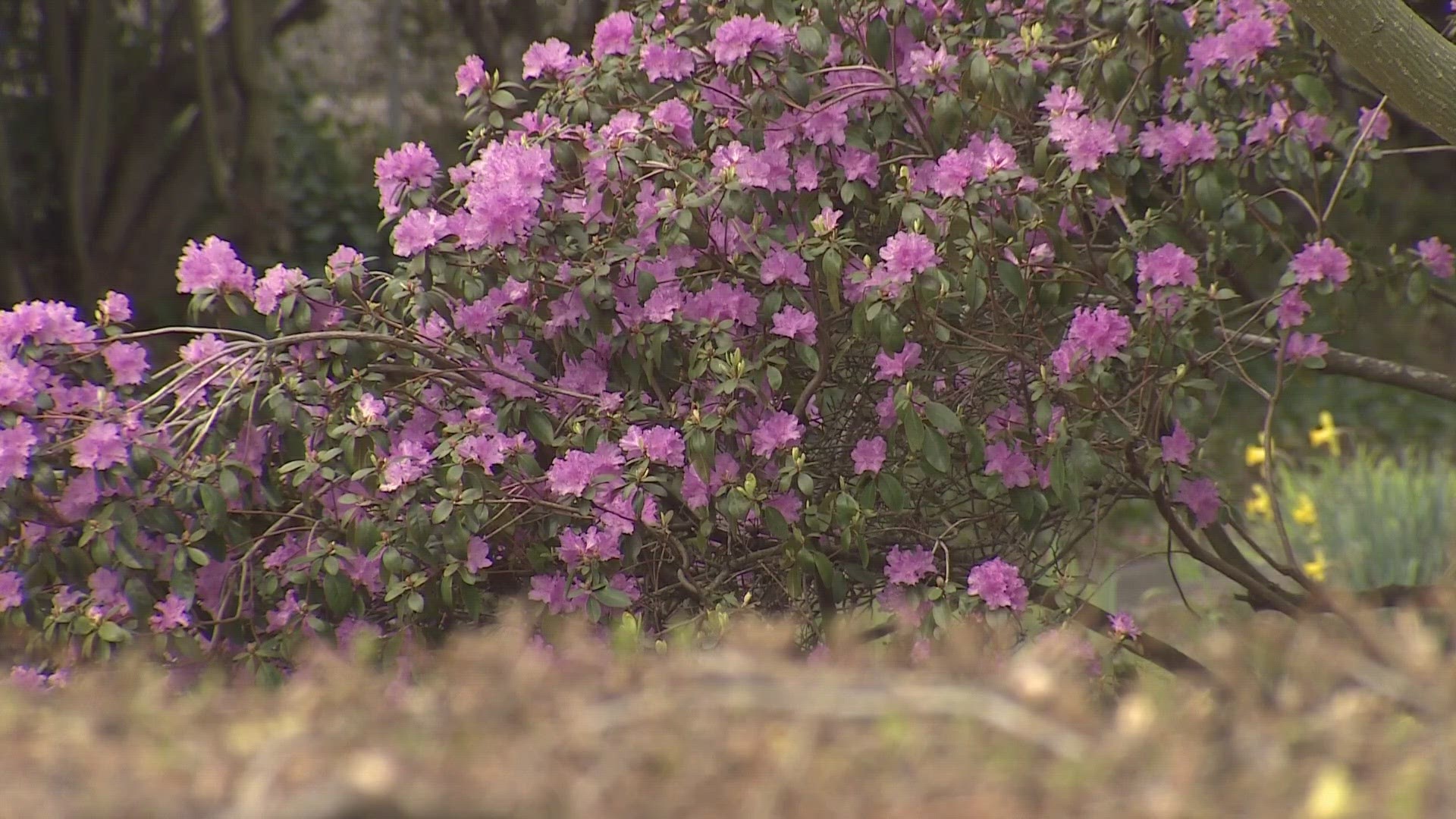SEATTLE — Spring is in the air, and so is that pesky pollen. Hay fever is not unique to the northwest, but how is allergy season in the Pacific Northwest unique, and how's it shaping up so far?
KING 5 went to allergy specialists at UW Medicine for some insight and to explore whether warmer temperatures are contributing to a more severe season.
Mariana Pimentel is a student at Eastern Washington University and said she feels like she's allergic to just about everything.
"Grass pollen, tree pollen, most trees, alder, oak, most things," Pimentel said.
During her spring break back home in Seattle, she stopped by the allergy clinic at UW Medicine for some relief and notes that her pollen allergy back east isn't too bad.
"But when I'm over here, it's crazy, like the rain kicks them up," Pimentel said.
So what exactly, is in the air — in this region?
Physicians and meteorologists alike turn to a graph compiled by the Northwest Asthma and Allergy Center showing which pollen is causing allergy sniffles and sneezes.
Right now in the Seattle area, tree pollen from birch and cottonwood trees, peaks in March and April.
Later in the season in May and June is when grass pollen becomes a bigger issue.
"In the pacific northwest specifically, we're lucky to have, relatively speaking, temperate temperatures all year round," said Dr. Jenny Sun, a Clinical Assistant Professor of Allergy and Immunology specializing in pediatric allergies at UW Medicine's Division of Allergy and Infectious Diseases.
At a clinic at UW Medical Center in Montlake, Sun consults with patients and provides allergy testing with a simple skin prick, to determine what exactly a patient is allergic to.
"We have a standard multi-prick that will do for our patients that come in for environmental allergies," Sun said.
Sun said it's difficult to predict an allergy season early on, and it's not yet clear if increasingly warmer temperatures over the past few years and more rainfall are what's causing a bad allergy season. But what allergists do know, is it's not getting any better.
"Overall, what we've seen for the past couple of years is that pollen counts have indeed been higher, and because of that some people are coming in, feeling that symptoms are worse," Sun said.
The Washington State Department of Health attributes some of it to climate change, citing a report by a peer-reviewed journal of the National Academy of Sciences. WSDOH adds pollen season is starting 20 days earlier and lasting for almost a month longer, compared to 30 years ago.
Patients like Pimentel are feeling it. She now opts for allergy shots to build immunity against allergens.
"They actually do make a difference; I can tell because I'm taking less medication," she said.
Sun said such shots are one of several options to mitigate symptoms.
"So unlike medication, this is actually giving a person what they're allergic to in a very safe and measured way, for quite a long period of time to help actually desensitize the body and retrain the immune system not to be so allergic to these things anymore," Sun said.
Sun said you can try other avoidance measures like washing clothes after being outside and showering before sleeping to get any pollen off hair and skin.

